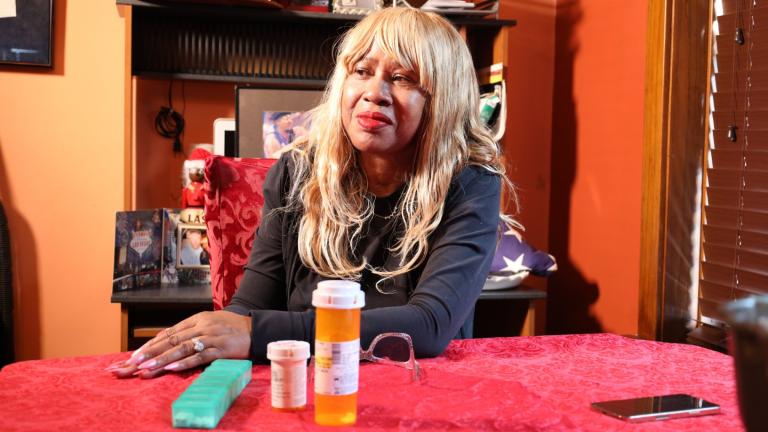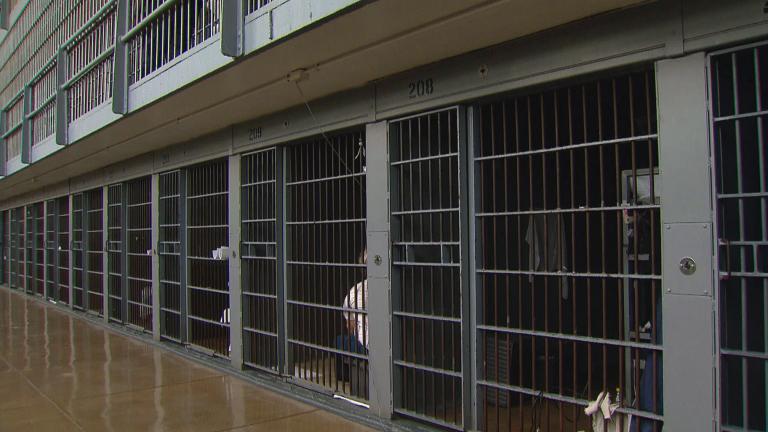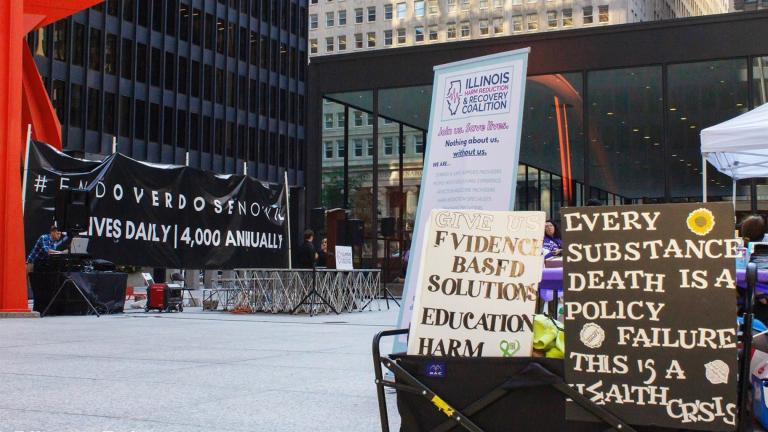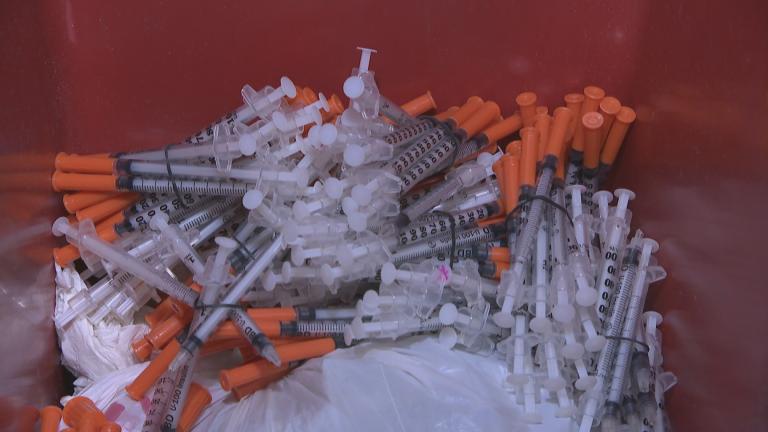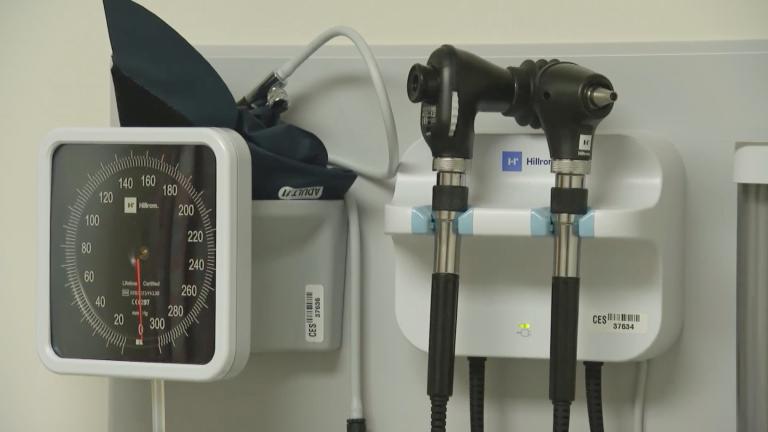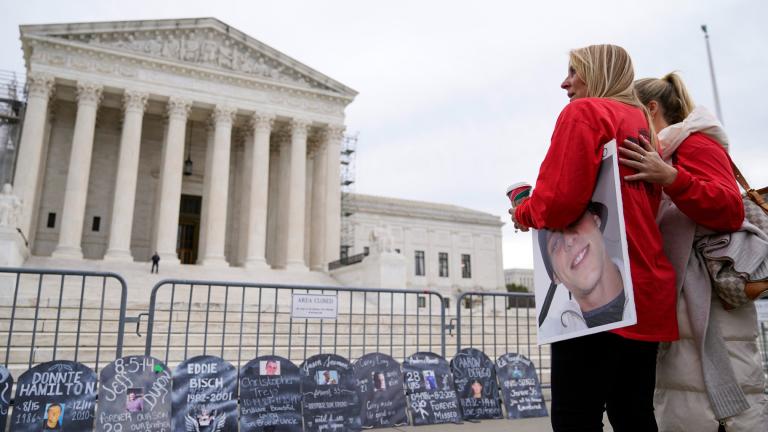Video: Cook County Chief Medical Examiner Dr. Ponni Arunkumar and Duaa Eldeib, a ProPublica Illinois reporter, talk about the rise in opioid-related deaths.
Officials are sounding the alarm on the rising number of opioid-related deaths in Cook County, which they say is on track to see twice as many deaths from opioids in 2020 as it did in 2019.
“While much of this year has been consumed by our fight to contain COVID-19, which has disproportionately impacted our communities of color, we’ve had to contend with skyrocketing homicide rates which almost universally took the lives of Black and Brown people and we must face the devastating toll the opioid crisis is taking on our community as well,” Cook County Board President Toni Preckwinkle said Tuesday morning.
In 2019, there were 605 opioid-related deaths between Jan. 1 and July 13. So far this year, 773 deaths can be attributed to opioids, according to Cook County officials.
“But that only tells part of the story,” said Cook County Medical Examiner Ponni Arunkumar. “We also have 580 pending cases. We know traditionally 70%-80% of cases wind up being ruled as opioid overdose deaths. … This means this year there are (already) more than 1,200 opioid overdose-related deaths.”
The medical examiner’s office confirmed a total of 1,267 opioid overdose deaths in 2019, and 1,148 such deaths in 2018. The majority of the victims are people of color, according to Arunkumar.
Among the 773 people who died this year, 63% were Black or Latino, according to Arunkumar, who said people ages 45-54 were most likely to die from an opioid overdose, followed by those ages 55-64.
“Fentanyl is the culprit in the overwhelming majority of these cases,” she said. “The majority of the victims (live) on the West Side in Austin and the East and West Garfield Park neighborhoods.”
These deaths are “by and large preventable,” said Arunkumar.
Despite the increase in opioid-related deaths, emergency rooms aren’t seeing an increase in patients seeking help, according to Dr. Steve Aks, division chair of emergency medicine and toxicology at Cook County Health.
“This means people by and large are not coming to the emergency room or hospital at a point of crisis. This is very important. We’ve actually seen decreases in volume of emergency room (visits) since the beginning of the pandemic,” Aks said. “This is extremely alarming with respect to opioid overdoses.”
Hospitals and emergency rooms are safe, Aks said. “Due to the pandemic, we asked individuals to stay home unless it was an emergency. An overdose is such an emergency,” he said.
Aks urges people to call 911 during an opioid overdose because paramedics can begin treating someone on the scene or en route to the hospital. “An opioid overdose death in the emergency room is a rare event,” he said. “We don’t want people to be afraid to come to the emergency room. We are here to serve everyone.”
Patients are asking for help in other ways, however. According to officials, Cook County Health has seen a 20%-25% increase in patients seeking help for substance use.
“We are working to keep patients safe by breaking down barriers to access through telehealth visits, frequent team engagement and outreach, access to naloxone for overdose prevention, and longer prescription supplies to avoid disruptions in care,” said Dr. Juleigh Nowinski Konchak, lead physician for medication assisted treatment at Cook County Health. “We have a long history of serving a vulnerable population and we see every day the toll this crisis is taking on them.”
Through a collaboration between Cook County Health and the Chicago Recovery Alliance, anyone can take part in a mobile syringe exchange program and be connected with Cook County Health over the phone, according to Konchak, who said CCH clinics will begin dispensing naloxone as well.
In addition, CCH is in the process of building a partnership with law enforcement to equip them with naloxone, according to Dr. Kiran Joshi, assistant incident commander of CCH operations. “It’s important to blanket the community with as much naloxone as possible,” he said.
The county is also in the process of building partnerships with law enforcement that would connect people with access to care, according to Joshi.
Contact Kristen Thometz: @kristenthometz | (773) 509-5452 | [email protected]
Note: This story was originally published on Tuesday, July 14. It has been updated.

